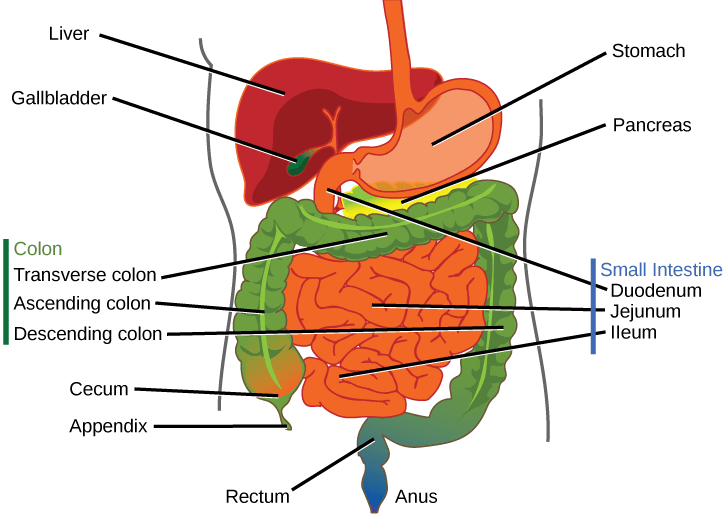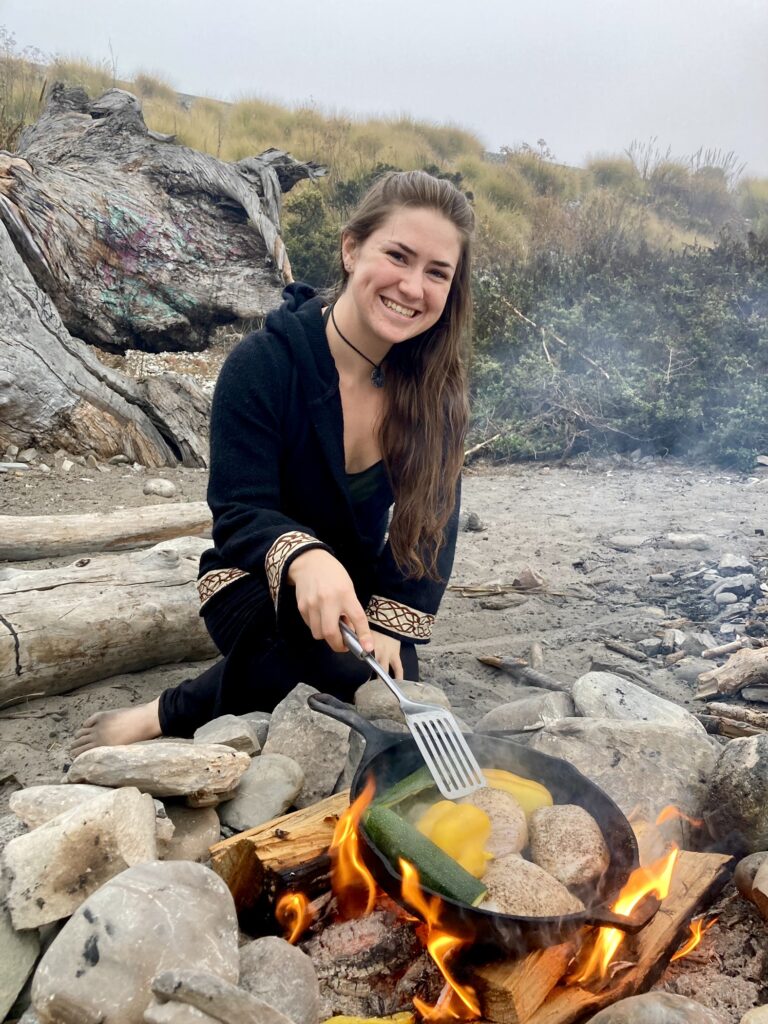Overcome Your Gut + Digestive Issues With Ancestral Nutrition
How Digestion Affects Nutrient Absorption

Just because you’re eating a nutrient dense diet, doesn’t mean you’re absorbing all those nutrients. Without a strong digestion to fully break down food, your body won’t optimally absorb and utilize the nutrients.
How Digestion Works:
To better understand this, lets take a look at how your body digests food. Digestion begins in your mouth with chewing and the production of saliva. Next, the food moves to your esophagus and into your stomach via a method called perisalsis (small contractions in organ walls in the gastrointestinal track). (1)
Once in your stomach, digestive juices (such as stomach acid and enzymes) and stomach contractions further breakdown your food into a substance known as chyme. (1)
This chyme then travels to the small intestine where it is further broken down by more digestive juices. Ideally the chyme is broken down into the smallest units (monomers) that make up the macromolecules (protein, carbs, and fat). Protein breaks down into amino acids; carbohydrates break down into glucose, fructose, and lactose; and fat breaks down into fatty acids and glycerol. (1)
In the small intestine, these monomers are absorbed into the blood stream where they can be utilized for energy, growth, cell repair, and more. The remainder of undigested food is moved through the large intestine and out the rectum. (1)
Absorption of Nutrients:
Problems in absorption occur when the digestion is weak. A weak digestion will not fully break down chyme into the maximum amount of monomers. And since only monomers are able to be absorbed into the blood stream, a lot of not fully digested food will be excreted in the feces along with the nutrients.
By strengthening your digestion, your body can better breakdown chyme into more monomers, and therefore absorb more nutrients from food.
Tips for a Better Digestion:

1. Relax While and After You Eat
When your body is relaxed it’s in the parasympathetic mode (aka the rest and digest mode). In this mode you have increased salivation and increased gut motility which allow for a stronger digestion and better absorption.
As apposed to the sympathetic mode (aka fight or flight mode). This mode is brought on by stress. In the sympathetic mode, your body takes energy away from the digestive system and increases heart rate, widens bronchial passages and basically prepares you to fight or run for your life. In this sense stress decreases digestion and nutrient absorption.
So take a few deep breaths and calm yourself before you eat. Eat in a relaxed manner and then let yourself sit and digest for at least 10 minutes before jumping up to do something else.
2. Eat Slow and Chew Food Thoroughly
This is a continuation of tip number one since eating slow coincides with relaxing. Yet there is another reason I recommend this. Digestion begins in the mouth so by eating slow and thoroughly chewing your food you are breaking down your food better and getting your digestion off on the right foot.
3. Eat Easy to Digest Foods

Cooked warm foods are generally much easier to digest since they have already been partially broken down. Meat, cooked veggies, and soups are all good choices. If you are struggling with a weak digestion, avoid cold or heavy foods like ice cream, raw veggies, and sandwiches.
4. Give Your Gut a Boost
Fermented and cultured foods such as kimchi, sauerkraut, fermented veggies, raw cheese and yogurt will increase the good bacteria in your gut biome which helps to better digest food.
5. Sprout, Soak, Ferment, Cook
Sprouting grains and legumes, soaking and or roasting nuts, fermenting veggies, and cooking food all help to break them down and make them easier to digest. Humans do not have the complex digestive systems, large colons, and the ability to digest cellulose as herbivores do. Humans are not made to eat large quantities of raw veggies. In fact most of the time, breaking our food down ahead of time via sprouting, soaking, fermenting, or cooking greatly improves our digestion and nutrient absorption. To learn how to ferment veggies check out this post.
6. Leave Space Between Meals
As a general rule of thumb leave at least 3 hours between meals and do not snack in between meals. This will give your gut a chance to rest and repair between meals. It will also allow you to build up a healthy hunger for your next meal.
Concluding Thoughts:
A strong digestion is key to maximizing nutrient absorption. To increase your digestion relax while and after you eat; eat slow and chew food thoroughly; eat easy to digest foods; give your gut a boost; sprout, soak, ferment, and cook; and leave space between meals.
Works Cited
1. “Your Digestive System & How it Works.” NIDDK. Accessed 31 December 2019. http://www.niddk.nih.gov/health-information/digestive-diseases/digestive-system-how-it-works#howdoes



